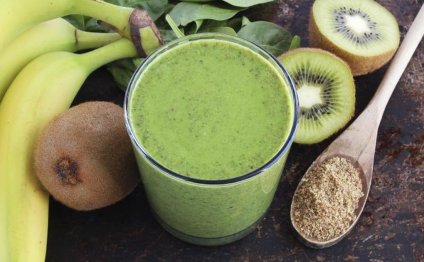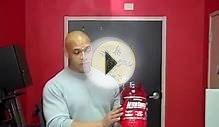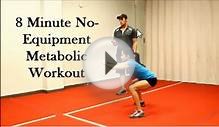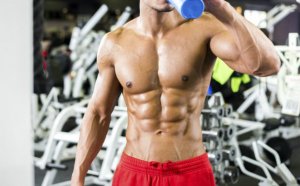
Banana after workout
 You went to depth on every squat rep and pushed your reverse lunges to failure. Your quads are beat and your hamstrings burn. Your workout was tough, but it didn't build an ounce of muscle.
You went to depth on every squat rep and pushed your reverse lunges to failure. Your quads are beat and your hamstrings burn. Your workout was tough, but it didn't build an ounce of muscle.
The opportunity for muscle growth begins the moment you stop lifting, and that growth can't happen without proper recovery protocol. Muscles don't grow in the gym; they grow after. When you lift heavy, muscles suffer microtears and are actually broken down via a process called catabolism. Immediately after you lift, your body begins repairs, but it needs your help.
If you want to get the most from each and every workout, you need to prioritize post-workout recovery. Heed these eight tips to maximize recovery, stay on top of your game, and ensure maximum gains.
 1
1
Push The Barrier, Don't Annihilate It
"No pain, no gain!" has probably been spat in your face as you struggled to rack a one-rep max bench press. Pushing beyond your limits is a good thing, you tell yourself, but just how far should you push? BPI Sports co-founder James Grage believes in egging the muscle on just enough to create that needed stimulus for muscle growth, but not in completely destroying it to the point where your muscle hurts for days.
If you obliterate your body with every workout, your body will revert its energy to repairing the downstream effects of the damage rather than building muscle.
"The focus shouldn't be on how fast you recover, but instead on how productive your recovery is, " says James. If you constantly obliterate your body to complete and utter exhaustion with every workout, this damage accumulates over time and your body will revert its energy to repairing the downstream effects of the damage rather than building new muscle.
If you constantly obliterate your body to complete and utter exhaustion with every workout, this damage accumulates over time and your body will revert its energy to repairing the downstream effects of the damage rather than building new muscle.
According to James, the trick is to "work out hard enough to push yourself past your comfort zones—trying to do more than you did the workout before, for example. Just don't destroy yourself entirely." By following this sage advice, you'll make solid and steady progress rather than taking one step forward and two steps back.
Get Serious About
By now, most people understand that the foods they eat after their workout and throughout the day factor into the quality of their recovery. The foods you eat before a workout can also play an important role in pre-empting the tissue-rebuilding process once the workout is over.
Digestion is a lengthy process; proteins and carbs that you ingest prior to the workout will still be circulating in the body afterward. For this reason, choose your foods wisely. Make sure you get high-quality, lean protein along with some complex carbohydrates, especially if you plan on an intense workout. I recommend consuming your meals roughly two hours prior to your workout to avoid digestive issues or cramps.
In addition to eating near your workouts, there have been substantial reported benefits of taking BCAAs before and during a workout, as well. James recommends using BEST BCAAs, which have been designed to encourage efficient absorption by the muscle cells. Grage takes one serving during his workout and then another serving right before bed.
INTERESTING VIDEO



Share this Post
Related posts
Creatine after workout
From boosting strength to building muscle to improving productivity, there are plenty of science-backed benefits linked to…
Read MoreFood after Workouts
When it comes to fitness, there are certain universal questions that experts hear almost every day: How can I get the most…
Read More









